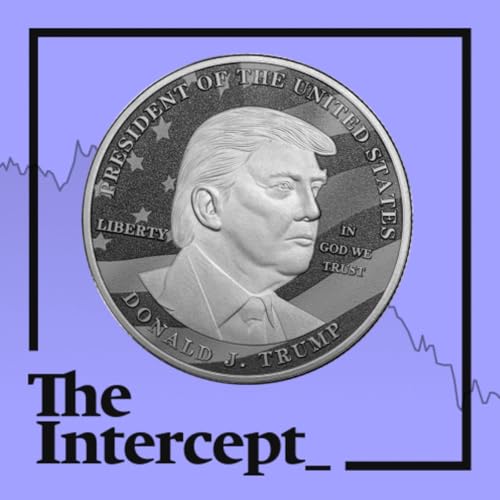
From Trump, With Impunity
カートのアイテムが多すぎます
カートに追加できませんでした。
ウィッシュリストに追加できませんでした。
ほしい物リストの削除に失敗しました。
ポッドキャストのフォローに失敗しました
ポッドキャストのフォロー解除に失敗しました
-
ナレーター:
-
著者:
このコンテンツについて
Once again, Israeli bombs rained down on Gaza. The latest wave of strikes killed more than 100 people, mostly women and children, according to health authorities.
The bombardment marked the deadliest day since the weeks-old U.S.-brokered ceasefire between Israel and Hamas began on October 10 — a ceasefire Israel has repeatedly broken with impunity.
“As the Trump administration likes to say, the ceasefire is still in place. And the media has parroted that as well. But an overwhelming amount of people that we spoke to on the ground are saying that there is no ceasefire with killings being at this rate. This is a continuation of the genocide,” says Intercept reporter Jonah Valdez. Palestinians “have a very crystal-clear view of Israel's policy and their goal of wanting mass expulsion from Gaza. ... Those who are surviving it and living it are seeing through the propaganda that the ceasefire is still in place.”
On The Intercept Briefing, Valdez joins host Jordan Uhl and reporter Matt Sledge to explain why President Donald Trump “has a lot to gain from continuing to tell the public that there is a ceasefire” and to discuss the news stories published on The Intercept this week.
“It's important to mention this layer of hope that exists. No one wants to call the ceasefire dead prematurely because if it surviving allows for other Palestinians and Gaza to survive,” Valdez adds, “then, you know, of course they have vested interest in seeing the truce live on.”
And back in the United States, Trump’s pay-to-play approach to running the government continues unabated. Trump recently pardoned the billionaire crypto king, Binance founder Changpeng Zhao, whose company has done business benefiting the Trump family.
“Binance overnight became the biggest customer of the Trump family venture, which is called World Liberty Financial,” Sledge points out. “I think a lot of skeptics out there are saying, like, ‘Boy, this sure just looks exactly like pay to play, like quid pro quo.’”
Listen to the full conversation of The Intercept Briefing on Apple Podcasts, Spotify, or wherever you listen.
You can support our work at theintercept.com/join. Your donation, no matter the amount, makes a real difference.
Hosted on Acast. See acast.com/privacy for more information.


